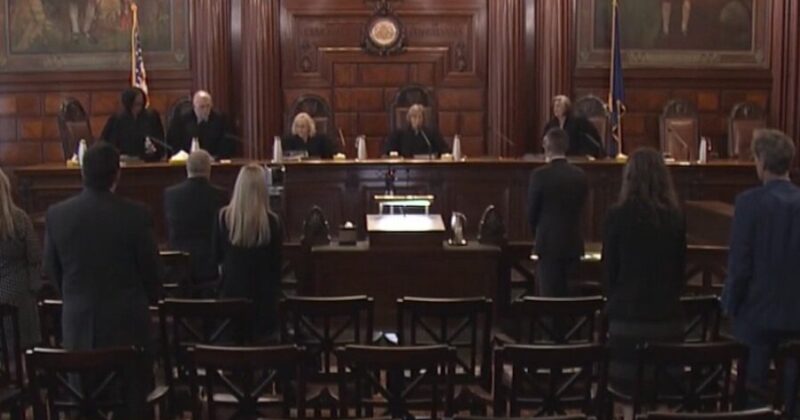In a groundbreaking decision, the Commonwealth Court of Pennsylvania has declared that digital images of completed absentee and mail-in ballots must be treated as public records.
This key ruling originated from a case involving appellant Michelle Previte, who requested electronic copies of these ballots from the 2020 General Election under Pennsylvania’s Right-to-Know Law (RTKL).
The case began when Previte submitted RTKL requests to the Erie County Board of Elections, seeking access to digital images of all mail-in and absentee ballots, as well as images of the outer envelopes and polling place ballots from the November 2020 election.
The Board denied her request, arguing that these documents were not public records under Section 308 of the Pennsylvania Election Code.
Previte then appealed to the Office of Open Records (OOR), which sided with her for the mail-in and absentee ballots but upheld the denial for polling place ballots.
The Erie County Board of Elections took the matter to the Court of Common Pleas, which ruled in favor of the Board.
However, the Commonwealth Court overturned this decision on Wednesday, ruling that digital images of absentee and mail-in ballots are indeed considered public records.
The court ruled that these images fall under the Right-to-Know Law (RTKL), which requires public access to government records unless specifically exempted by law.
Judge Ellen Ceisler, who wrote the majority opinion, stated that completed absentee and mail-in ballots, once taken out of ballot boxes or voting machines, should be treated as public records.
These ballots can be requested through an RTKL inquiry, provided they comply with the Election Code’s disclosure rules and do not include information that identifies, or could reasonably identify, the individuals who cast them.
Candidate for Lieutenant Governor, Natalie Clawson, praised this ruling, stating, “Huge win for election integrity in Pennsylvania! Utah needs to follow Pennsylvania’s example and declare that the digital images of mail-in ballots are public record.”
She added, “Two things can be true: the Elections images must be auditable to restore trust AND the individual’s vote is must be kept secret. Utah.. let’s follow Pennsylvania’s lead.”
She continued, “There is evidence that some precincts in Salt Lake Co had 117% voter turnout in 2020 for withheld voters. This is clearly a problem. The public and a third party needs to be able to audit our elections.”
Investigative reporter Behizy wrote on X, “What I love about this ruling is that it seems like the Appellate judges really took their time to understand the issue at hand. Section 308 of Pennsylvania’s election code says everything is public record “except the contents of ballot boxes and voting machines and records of assisted voters,”
“The lower court used some twisted logic to say the ballot images were somehow “contents of voting machines and, thus, were shielded from RTKL requests.” Yes, images of the ballots are taken by the machine but they’re not part of the machine. The pictures you take with your phone aren’t part of your phone, that’s nonsensical to think but these are the lengths some judges and election officials are willing to go to conceal the truth.”
READ THE FULL OPINION HERE.
Share your thoughts by scrolling down to leave a comment.

